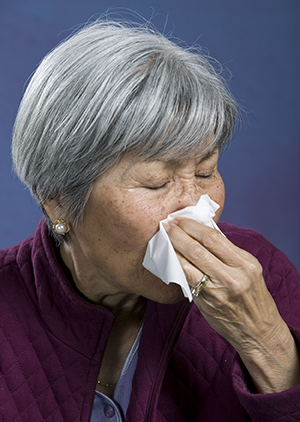Causes of Nasal Allergies
Nasal allergies are most often caused by 1 or more of these 4 kinds of allergens:
Other substances, called irritants, can bother the nose and make allergy symptoms worse.

Pollen
Pollen comes from plants, including trees, grass, and weeds. Plants reproduce by moving tiny grains of pollen from plant to plant. Some pollen is carried by bees. And some is blown by the wind. It’s the wind-blown pollen that causes nasal allergies. The amount of pollen in the air changes from season to season.
Dust mites
Dust mites are tiny bugs too small to see. They can live in mattresses, blankets, stuffed toys, and carpets. Their droppings are a common indoor cause of nasal allergies. Dust mites are normal. They're not an infestation and they don't bite.
Mold
Mold loves dark, damp areas, both indoors and outdoors. It tends to grow in bathrooms, basements, refrigerators, and in the soil of houseplants. Mold reproduces by sending tiny grains called spores into the air. If these spores are breathed in, they can cause a nasal allergic reaction. Mold is also present in decaying vegetable matter. For instance, in piles of wet leaves in a yard.
Animals
Pets are common causes of nasal allergies. This includes cats, dogs, birds, horses, and rabbits. Flakes of skin (dander), saliva left on fur when an animal cleans itself, urine in litter boxes and cages, and feathers can all cause nasal allergies. Pests, such as rodents, can also be a major cause of allergies. This is especially the case in urban settings. They may not even be in your own apartment.
Irritants
Irritants don’t cause nasal allergies. But they can make allergy symptoms worse. Examples of irritants include:
-
Cigarette smoke
-
Aerosol from e-cigarettes and other vaping devices
-
Perfume
-
Aerosol sprays
-
Smoke from wood stoves or fireplaces
-
Air pollution
-
Car exhaust
-
Strong odors such as from cleaning products